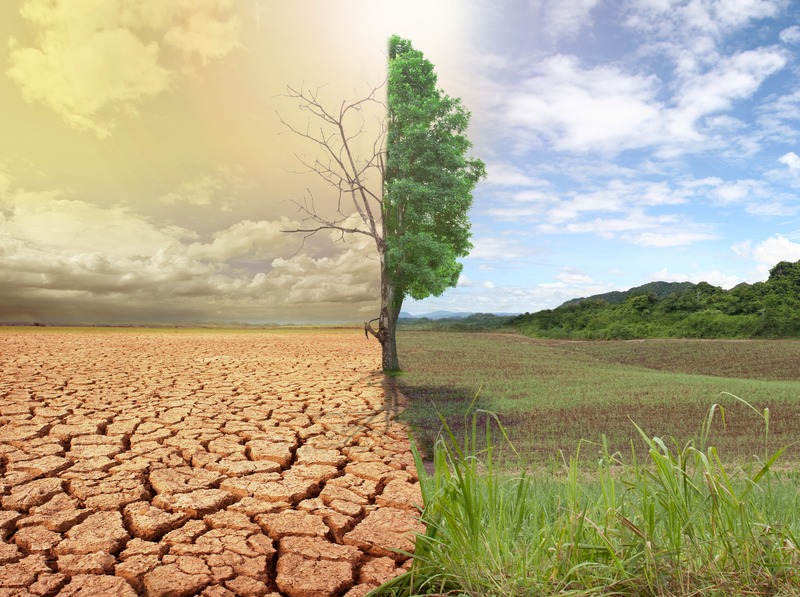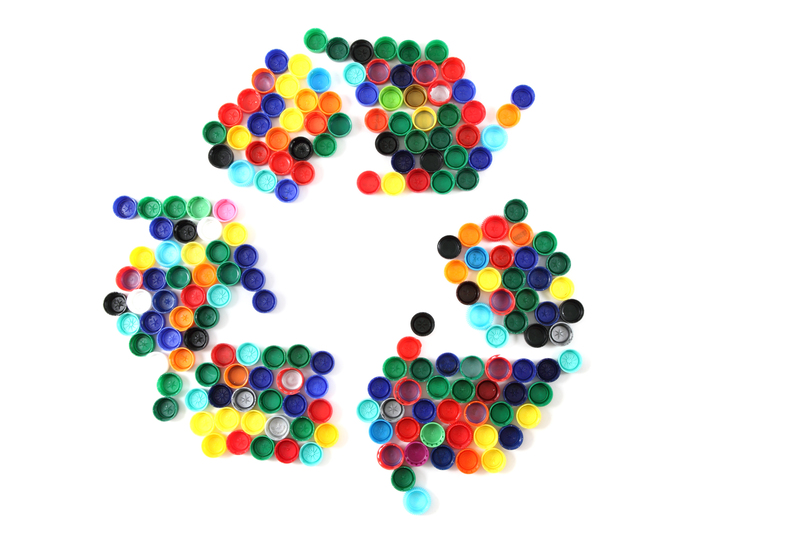Community Tips for Disposing of PPE Waste with Care
PPE, or Personal Protective Equipment, has become a vital part of our daily lives in the wake of global health crises. As masks, gloves, face shields, and other protective gear have become more commonly used, the challenge of responsible PPE waste disposal has emerged. Mishandling of PPE waste poses environmental and health risks, making it crucial for communities to adopt safe and efficient disposal practices. This comprehensive guide shares practical community tips for disposing of PPE waste with care for households, businesses, and local organizations.

Understanding PPE Waste and Its Environmental Impact
Before diving into best practices for PPE waste disposal, it's essential to understand the types of PPE waste and the associated environmental challenges.
What is PPE Waste?
- Masks: Disposable surgical masks, N95 masks, fabric masks with filters
- Gloves: Latex, nitrile, vinyl, or plastic gloves
- Face shields and goggles
- Protective gowns and hazmat suits
- Shoe covers and hair nets
Many of these items are made from plastics and other non-biodegradable materials. Incorrect disposal leads to soil, water, and marine pollution, threatening wildlife and public health.
The Environmental Hazards of Improper PPE Disposal
- Microplastics: Masks and gloves break down into tiny plastic particles that pollute ecosystems.
- Wildlife Risks: Animals may ingest or become entangled in discarded PPE.
- Human Health Threats: Used PPE may be contaminated, fostering the spread of viruses and bacteria.
- Waste Management Overload: Increased PPE waste strains waste systems, especially during pandemics.
In light of these hazards, adopting effective community PPE waste management strategies is crucial.
Best Practices for Safe PPE Waste Disposal in Communities
1. Educate and Raise Awareness
- Community Workshops: Organize educational sessions about the proper handling and disposal of PPE.
- Informative Signage: Place posters in public spaces - parks, transit stations, hospitals - illustrating safe PPE waste management.
- Social Media Campaigns: Use local digital channels to spread accurate guidelines about PPE disposal.
Empowering community members with knowledge is the foundation of responsible PPE waste management.
2. Safe PPE Waste Handling Techniques
- Designate a PPE Waste Bin: Set up lined, lidded bins specifically for used PPE in homes, workplaces, and public areas.
- Double-Bagging: Double-bag used PPE items to minimize the risk of leaks and contamination.
- Keep Away from Recyclables: Never place used PPE with regular recyclables; it often contains biological contaminants.
- Wear Gloves When Handling: Always use clean gloves or wash hands thoroughly after touching used PPE.
These steps help prevent the potential spread of infections and ensure the safety of sanitation workers.
3. Encouraging Proper Public Disposal
- Install PPE Disposal Points: Place dedicated PPE bins in public places: entrances, bus stops, malls, and community centers.
- Regular Collection: Local councils should schedule frequent collection of PPE waste to prevent overflow and litter.
- Clear Labelling: Use clear, bold labels like "PPE Waste Only" to guide the public.
Community cooperation is key to keeping shared spaces clean and safe.
4. Advise Against PPE Littering
- Anti-Littering Campaigns: Run local campaigns to discourage tossing masks and gloves on the ground.
- Fines & Enforcement: Support enforcement of PPE littering fines where needed.
Littered PPE is not only an eyesore but a public health and wildlife hazard.
5. Support for Proper PPE Waste Segregation
- Color-Coded Bins: Use color-coded bins (such as red for infectious waste) to simplify the segregation process.
- Civic Guidance: Work with local waste authorities to distribute easy-to-follow guides for sorting PPE waste.
- Training for Cleaning Staff: Provide targeted training on PPE waste segregation and handling.
Efficient segregation limits contamination and eases waste processing at municipal facilities.
PPE Waste Recycling: Is It Possible?
Traditional PPE, being contaminated and composed of mixed materials, is usually not suitable for home recycling. However, new options and innovations are emerging:
Specialized PPE Recycling Schemes
- Pilot Programs: Certain organizations and companies now offer services to collect and recycle used PPE, converting it into benches, road materials, or fuel.
- Industrial Processing: Advanced facilities can sterilize and reprocess some PPE items.
Contact local waste management providers or visit municipal websites to check for PPE waste recycling opportunities in your area.
Fabric Masks & Reuse
- Washable Masks: Opt for reusable fabric masks where appropriate; wash them thoroughly between uses.
- Longevity: Following the manufacturer's care instructions extends their life and reduces waste overall.
Whenever possible, prioritize reusable PPE to further minimize waste streams.
Guidelines for Businesses and Institutions
Businesses, schools, and healthcare providers are significant PPE users. Implementing robust protocols is necessary to dispose of PPE waste responsibly:
- Internal Policies: Set clear procedures for PPE use and waste collection within premises.
- High-Capacity Bins: Equip entrances, exits, and key workstations with specialized PPE waste bins.
- Logistics: Arrange prompt and safe removal by certified waste contractors.
- Record-Keeping: Track PPE waste volumes for transparency and to identify reduction opportunities.
- Staff Training & Signage: Continuously train staff; update signage as needed.
Institutional compliance sets a strong example for the wider community and supports public health efforts.
PPE Waste Disposal at Home
Step-by-Step PPE Disposal Guide for Households
- Store Safely: Designate a covered bin for used PPE, lined with a plastic bag.
- Double Bag: Tie the initial bag securely and place it in a second bag before putting it in general waste.
- Do Not Flush: Never flush masks or gloves down toilets - this clogs pipes and pollutes waterways.
- Keep Separate: Keep PPE waste apart from recycling or compost.
- Wash Hands: After handling any used PPE, wash hands for at least 20 seconds with soap and water.
Following these steps limits transmission risks and supports worker safety in waste collection services.
Extra Tips for Families
- Child Safety: Keep used PPE out of reach of children and pets.
- Reusable Alternatives: Consider washable masks over disposables.
- Stay Informed: Refer to local council updates and health authority guidelines regularly.
Role of Local Governments and Waste Authorities
Local governments play a pivotal role in fostering community-wide best practices for PPE disposal. Here's how they can lead:
- Clear Guidelines: Publish and distribute official protocols for PPE and hazardous waste disposal.
- Resource Provision: Supply specialized collection bins and signage to public areas, especially high-traffic zones.
- Collection Services: Set up scheduled collection routes for PPE waste from households and business districts.
- Community Engagement: Partner with schools, businesses, and NGOs to promote environmental stewardship and safe disposal via workshops and campaigns.
- Data Collection: Monitor PPE littering hotspots and adapt strategies using public feedback and scientific data.
Efficient coordination between government bodies and citizens is needed for sustainable PPE waste management.
Common Mistakes in PPE Waste Disposal
- Mixing with Recyclables: Used PPE contaminates recyclable materials, rendering them unsuitable for processing.
- Littering in Nature: Throwing masks and gloves in open environments harms ecosystems and wildlife.
- Flushing Down Toilets: Causes plumbing blockages and pollutes rivers and beaches.
- Open Burning: Burning PPE releases toxic fumes; always use approved waste methods.
- Improper Storage: Storing used PPE in open containers increases infection risks.
Raising awareness of these errors is as important as promoting positive disposal habits.
Innovative Community Solutions & Initiatives
Communities worldwide are adopting novel approaches to tackle PPE waste:
- 'PPE Upcycling' Drives: In some areas, clean and sanitized PPE is repurposed for art or community projects.
- Community Clean-ups: Volunteer groups organize regular neighborhood sweeps to collect discarded masks and gloves.
- Reward Programs: Some municipalities offer incentives for residents who properly sort and return PPE waste.
- Partnerships with Organizations: Collaborate with environmental NGOs for expertise, resources, and awareness events.
By embracing community-driven initiatives, neighborhoods become proactive custodians of their environment.

Frequently Asked Questions about PPE Waste Disposal
- Can PPE waste go in the recycling?
Most disposable PPE cannot be recycled at home due to contamination and material mix. Use specialized PPE waste bins or general waste as directed by local authorities. - How should I dispose of PPE if I'm quarantined?
Follow national health guidelines: double-bag all PPE waste, separate it from household waste, label it clearly, and keep it isolated until collection. - Are there penalties for PPE littering?
Many localities have introduced fines for improper PPE disposal or littering. Check your municipal regulations for enforcement details. - How can I reduce my PPE waste footprint?
Use reusable protective gear where practical, support waste reduction programs, and educate others about sustainable options.
Conclusion: Embracing Responsibility for PPE Waste Disposal
Every member of the community has a role in ensuring that PPE waste is managed safely and sustainably. By adopting best community practices for PPE disposal, supporting local initiatives, and staying informed, we protect our health, our waste workers, and our environment. Let's work together for a cleaner, safer, and more resilient future.
Remember, disposal of PPE waste with care is more than a personal responsibility--it's a civic duty. Share these tips, get involved, and make a positive impact in your neighborhood today!